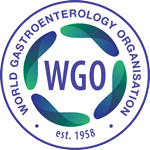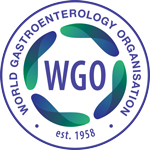Vedolizumab and ustekinumab levels in pregnant women with inflammatory bowel disease and infants exposed in-utero
Review by Prof. Jonathan O'Donnell (Australia)
Study Summary & Commentary
Inflammatory bowel disease is most commonly diagnosed in young adults (age 15-35) with a large cohort being diagnosed during or prior to childbearing years. Current guidelines recommend continuation of vedolizumab and ustekinumab throughout pregnancy to prevent relapse, which is a known risk factor for worse pregnancy related outcomes.
Data on newer biologics, such as vedolizumab and ustekinumab is limited – whilst both drugs have known maternal-fetal transfer, no negative safety signals on pregnancy outcomes have been reported when compared to the general population. Outcomes for infants exposed to vedolizumab or ustekinumab - in particular infant drug clearance, safety for postnatal infant vaccination, risk of allergy/atopy and risk of infection - is limited.
This study was a multicenter, prospective observational cohort study in Australia, of 102 women with 58 on vedolizumab. Post natal drug levels were measured in 41 infants on vedolizumab and 30 on ustekinumab.
This study confirmed that vedolizumab drug levels fall in pregnancy (noting an association between lower levels and increasing weight) with ustekinumab levels remaining stable. Placental drug transfer of ustekinumab exceeds vedolizumab (supported by earlier research) and the mean time for undetectable serum level in infants was 11 weeks for vedolizumab and 17 weeks for ustekinumab. Time to drug clearance was weakly associated with cord blood levels at delivery.
By 15 weeks (last timepoint for oral live rotavirus vaccine) 88% of those exposed to vedolizumab and 59% of those exposed to ustekinumab had undetectable drug levels. 15 of these infants exposed to vedolizumab and five of those exposed to ustekinumab underwent rotavirus vaccination without adverse reactions reported.
There was a weak correlation between increased infant drug levels and increasing gestation at final dose. Rates of breastfeeding at six weeks and six months, % of infants <10th centile for growth at six weeks and six months, food allergy percentages comparative to the general population was similar. There was a numerical increase in risk of preterm delivery in vedolizumab comparative to ustekinumab or anti-TNF, as suggested by prior research which has already suggested an effect of vedolizumab in placentation. Ustekinimab seemed to have increased incidence of postnatal minor infections, not requiring hospitalization, nor antibiotics at six months.
The strength of this study is that it is the first to assess infant clearance of newer biologics. The prior suggestion that live vaccines should be avoided for the first year of life those exposed to vedolizumab in utero now may be incorrect (Julsgaard et al), which is supported by Fitzpatrick et al.
Weakness of this study include limits of detection of drug levels with the author’s drug assays for ustekinumab and some incomplete data regarding infant drug levels.
Areas for future research will be confirming this data regarding infant drug clearance in other cohorts and longer term follow-up of infants to assess longer term outcomes comparative to the general population.
Link
https://pubmed.ncbi.nlm.nih.gov/38492905/
Citation
Julsgaard M, Kjeldsen J, Brock B, Baumgart DC. Letter: vedolizumab drug levels in cord and maternal blood in women with inflammatory bowel disease. Aliment Pharmacol Ther. 2018 Aug;48(3):386-388. doi: 10.1111/apt.14837. PMID: 29998502.
Fitzpatrick T, Alsager K, Sadarangani M, Pham-Huy A, Murguía-Favela L, Morris SK, Seow CH, Piché-Renaud PP, Jadavji T, Vanderkooi OG, Top KA, Constantinescu C; Special Immunization Clinic Network investigators. Immunological effects and safety of live rotavirus vaccination after antenatal exposure to immunomodulatory biologic agents: a prospective cohort study from the Canadian Immunization Research Network. Lancet Child Adolesc Health. 2023 Sep;7(9):648-656. doi: 10.1016/S2352-4642(23)00136-0. Epub 2023 Jun 27. PMID: 37390832.
View past News You Can Use commentaries

